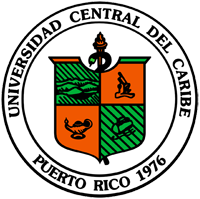The Certificate... |
The Graduate Program...... |
The Fellowship... |

The purpose of the educational program is the formation of high quality health professionals to provide services of excellence in substance abuse treatment and prevention in response to need in the community. The Substance Abuse Counseling Program confers a Post-Baccalaureate Certificate in Substance Abuse Counseling degree aiming to impart the knowledge, skills and competences to provide substance abuse counseling services to individual clients, their families, groups, and others in the community. In addition the program offers a Masters in Health Science in Substance Abuse Counseling with the goal of imparting the knowledge, skills and attitudes that enable Counselors to provide and supervise services and to plan, manage, and evaluate substance abuse programs for prevention and treatment in public and private organizations.
Post-Baccalaureate Certificate in Substance Abuse
The Post-Baccalaureate Certificate in Substance Abuse will train professionals to provide addictions counseling services to individual clients, their families, groups, and others in the community. The program will enable students to:
Acquire competencies in knowledge, skills, and attitudes necessary for effective substance abuse counseling of individuals, groups and families.
Understand and apply theoretical foundations necessary for substance abuse counseling of individuals, groups, and families.
Perform effectively the professional functions of an addiction counselor.
Apply knowledge and strategies for primary, secondary, and tertiary prevention of substance abuse.
Practice effective counseling within a bio-psychosocial approach in diverse public and private settings.
Perform as member of a professional interdisciplinary team.
Understand various perspectives in issues related to substance abuse counseling; considering the social, political, economic, and cultural context within which substance abuse exits.
The graduate of the Post-Baccalaureate Certificate in Substance Abuse will:
Demonstrate knowledge, skills and attitudes of the professional functions of an addiction counselor.
Access and apply state of the art knowledge and skills in substance abuse counseling throughout their career.
Perform effectively as member of an interdisciplinary team.
Adhere to professional and ethical standard for addiction counselors.
Provide effective and holistic services to substance abuse clients, their families and other in the community.
Master in Health Science in Substance Abuse Counseling
The Master in Health Science in Substance Abuse Counseling will impart the knowledge, skills and attitudes that enable Counselors to provide and supervise services and to plan, manage, and evaluate substance abuse programs for prevention and treatment in public and private organizations. The Program will enable students to:
Develop competencies to provide effective substance abuse counseling to individuals, groups, and families according to their needs and resources.
Develop knowledge, skills, and attitudes in management of Substance Abuse Programs.
Graduates of the Master in Health Science in Substance Abuse Counseling will:
Demonstrate competent provision of substance abuse counseling services to individuals, families, and groups.
Demonstrate knowledge, skills, and attitudes that enhance the effectiveness of interdisciplinary team, working in substance abuse programs.
Demonstrate ethical behavior and professional commitment as substance abuse counselors as well as in their roles in the management of substance abuse programs.
Foster the delivery of effective and humane services to substance abuse clients, their families, and others in the community.
Demonstrate competencies in the supervision of substance abuse counseling services and management of substance abuse programs.
Access and apply findings of current scientific studies to their field of specialization.



